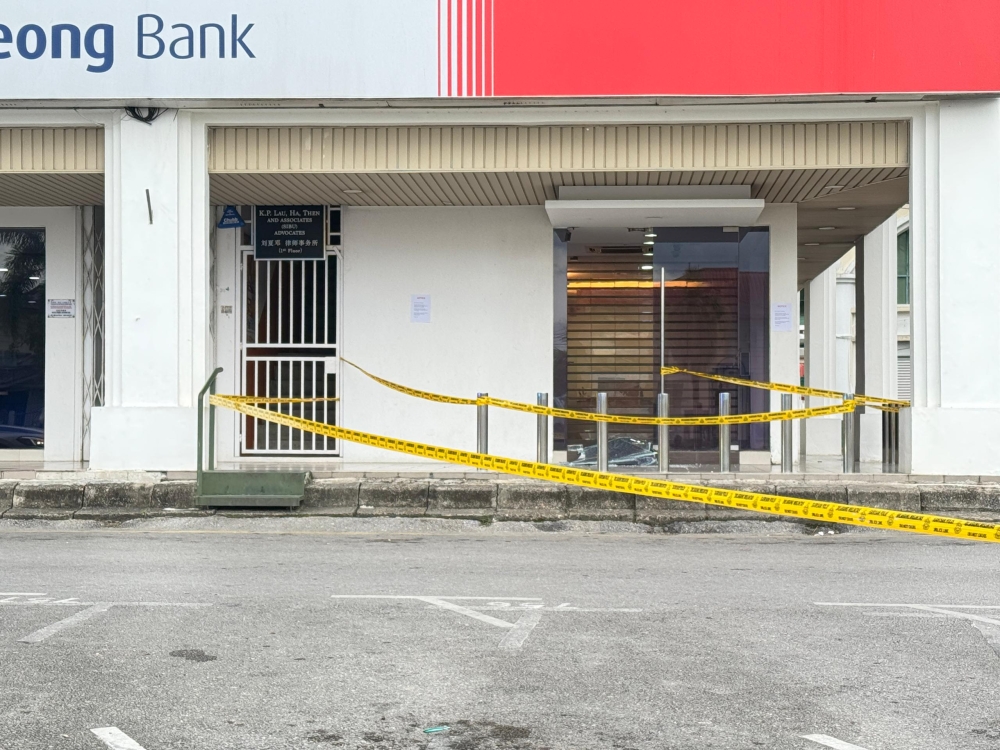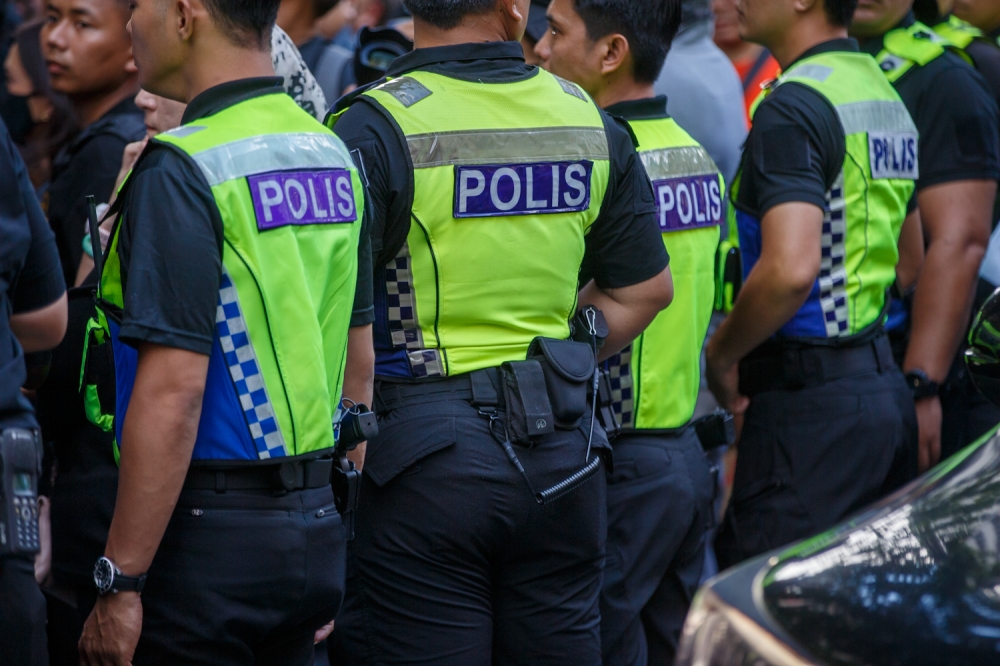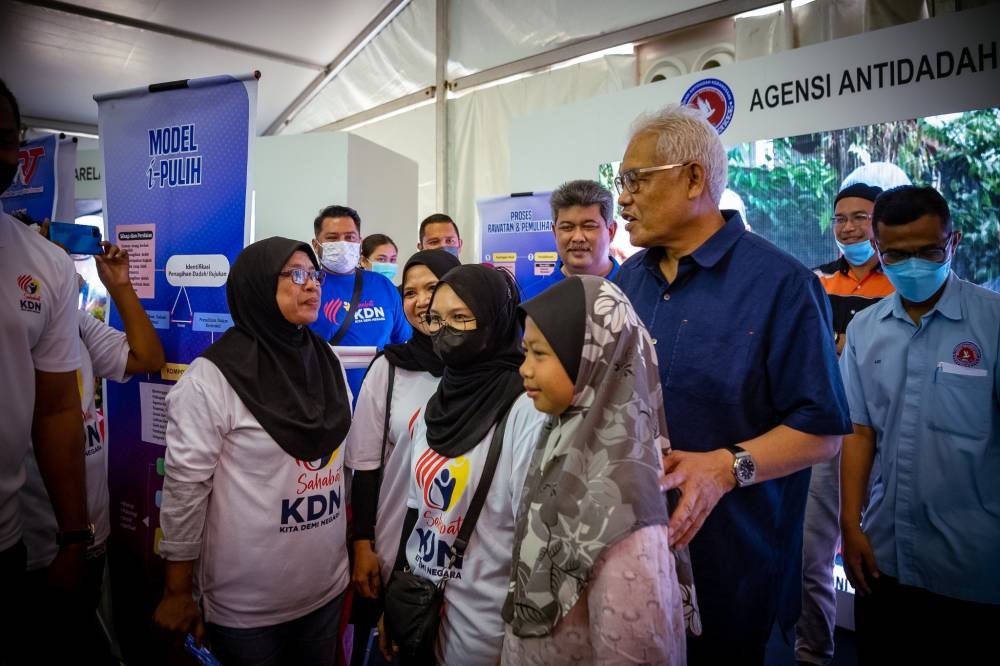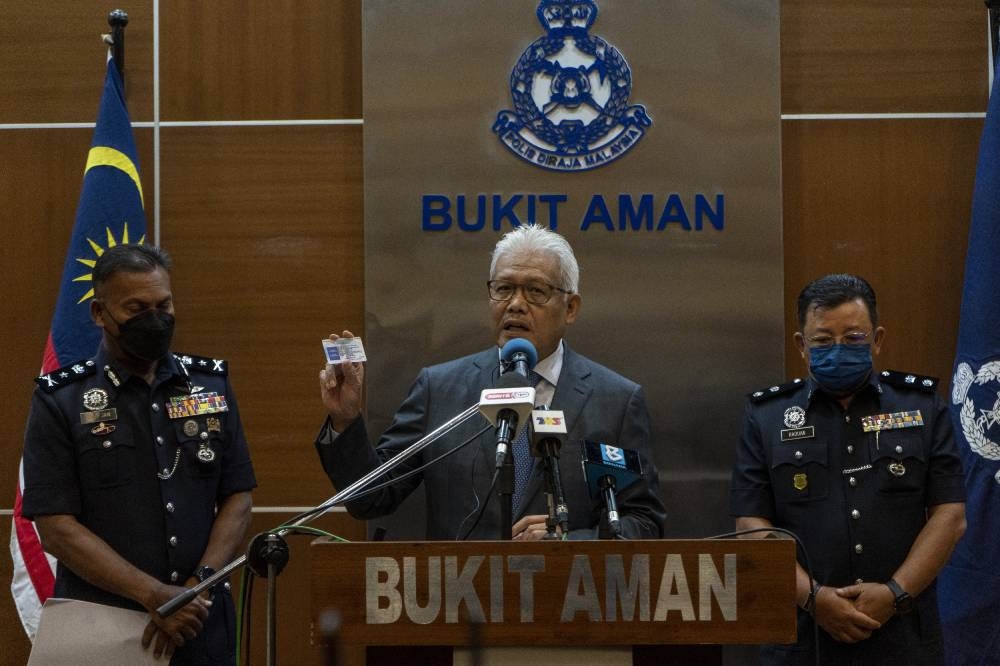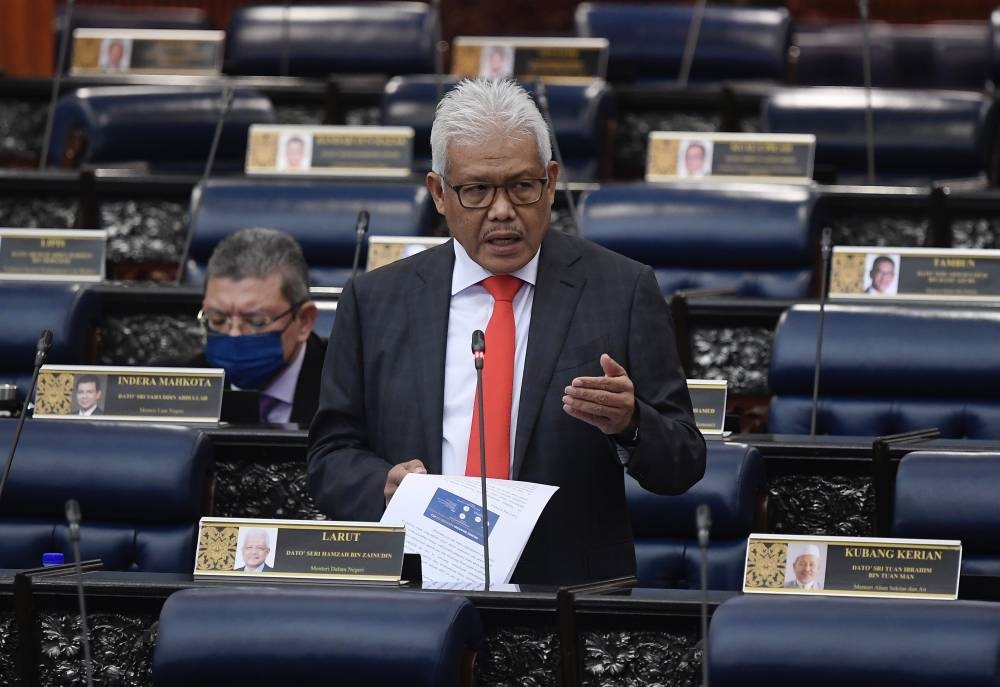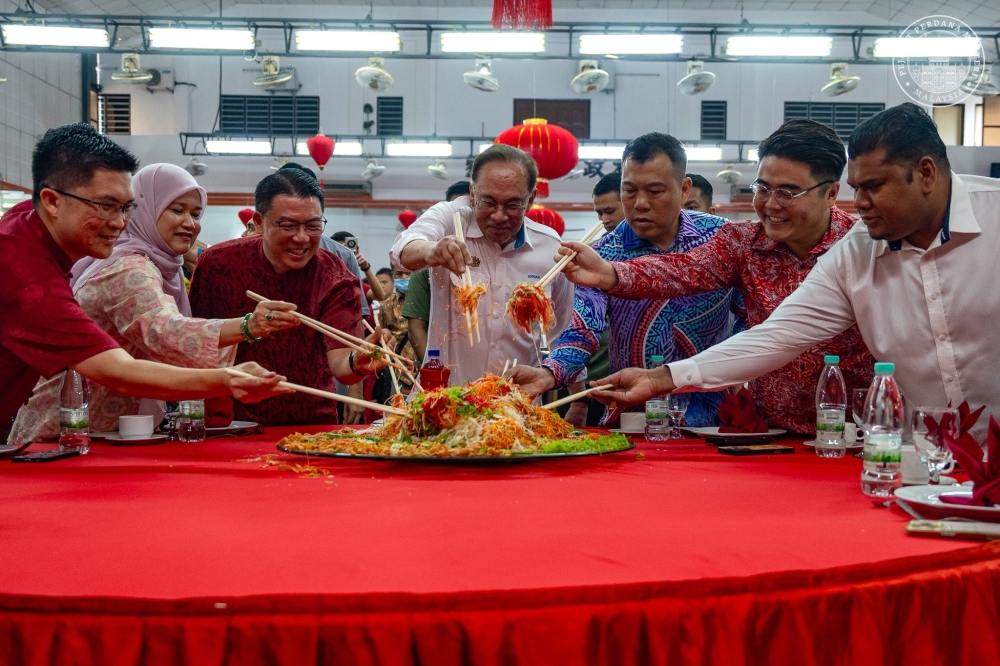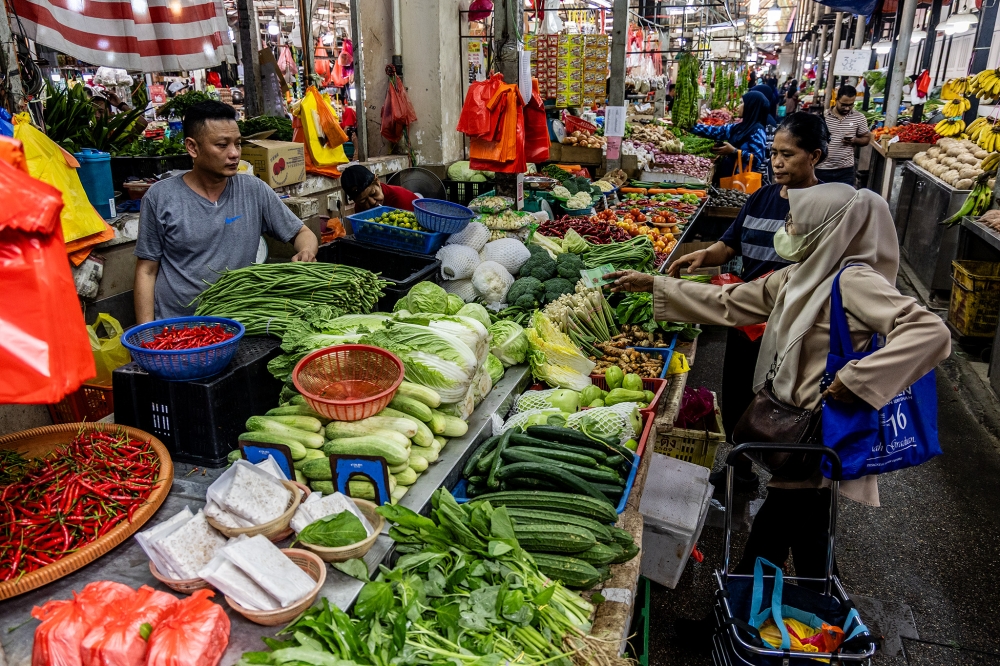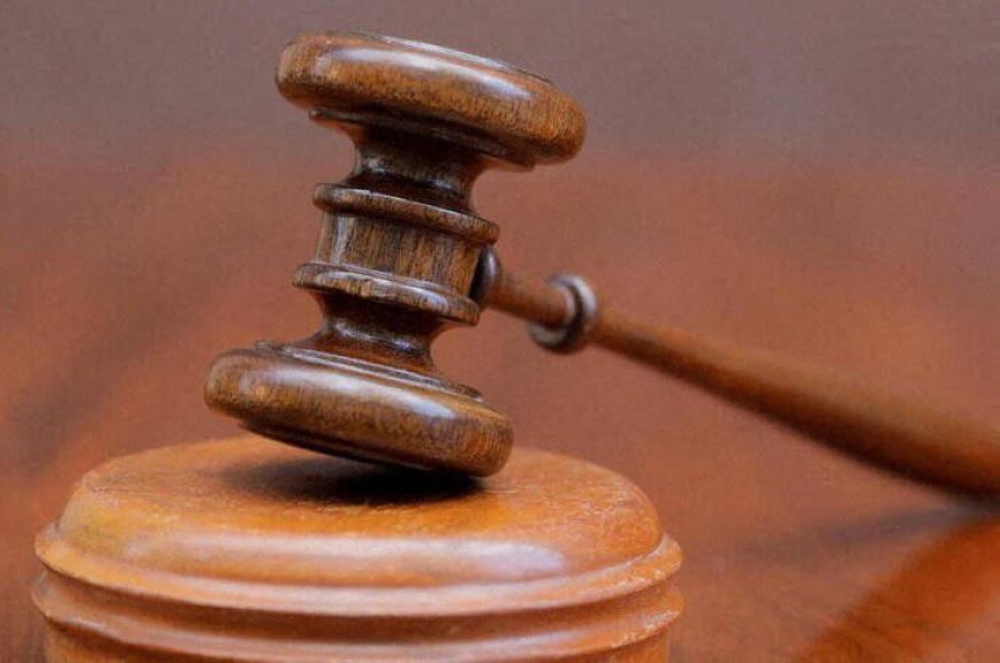KUALA LUMPUR, Aug 2 — Last month, Home Minister Datuk Seri Hamzah Zainudin announced that more than 2,000 people have been registered by Putrajaya for a programme called Sahabat Kita Demi Negara, which he said would act as the federal government’s “eyes and ears” in issues involving national security.
But what do we actually know about this programme, which is set to recruit young Malaysians to be informers and influencers for the ministry responsible for enforcement authorities such as the police and Immigration Department?
Malay Mail looks at the public information provided by the ministry and news reports to find out more about this programme:
Who are Sahabat Kita Demi Negara?
The programme translates to 'Friends of Kita Demi Negara', which is part of a programme by the Ministry of Home Affairs to recruit the public to be part of its initiatives.
Kita Demi Negara roughly translates to “We, for the sake of the nation” — with its initials KDN a play on the Home Ministry’s own initials in Malay.
The Sahabat part also echoes other unofficial “Friends of...” social media accounts which serves as fanpages of enforcement agencies, such as the pro-police Friends of PDRM and Fire and Rescue Department’s fanpage Friends of Bomba Malaysia.
Hamzah reportedly said that the ministry is targeting members as young as 15, which would be Form Three students in secondary schools.
When was Sahabat KDN launched?
The programme was first mooted in January 2022 and was officially launched in the Kuala Lumpur Convention Centre on March 17, 2022.
By then, it had already received 500 applications.
The ministry is targeting for 20,000 members by next year.

Why does the Home Ministry need friends?
In the official booklet published by the ministry, Hamzah was quoted saying that the programme seeks to raise awareness for the public to join KDN in carrying the responsibility to keep the country’s peace and security.
It outlined five goals, which included: ensuring the country’s peace and prosperity, strengthening patriotism, creating interracial unity and harmony, promoting the role of KDN and agencies under it, and fostering closer ties between the public and them.
It said one of its objectives is for all parties to be the government’s “strategic partner” to disseminate “accurate information” on its behalf.
During its launch, Hamzah cited Malaysia’s ranking of 23rd out of 163 countries in the Global Peace Index, and also the betterment of its national crime index.
“Thus we believed that direct cooperation between our Sahabat Kita Demi Negara and the ministry through this campaign will contribute to more efforts in the matters relating to our national security, as the campaign participants can report back to us from the ground,” he reportedly said.
Where does the ministry expect to find Sahabat KDN members?
Hamzah said it is targeting the participation of youth, non-governmental organisations, and members of educational institutions.
Despite saying that members can be as young as 15, Hamzah was quoted by news agency Bernama as saying that it will also be targeting participation in primary and secondary schools.
In its booklet, KDN said it aims to meet 10,000 Malaysians face-to-face to raise awareness of the campaign, increase “likes” and engagements in the ministry’s social media pages by 50 per cent, and to achieve 40 million “media value” by 2023.
The programme also plans to host nationwide roadshows for promotional activities, with the most recent one being the Northern Zone session last month in Batu Kurau in Larut, Perak — of which Hamzah is the member of Parliament.
Terima kasih kepada semua pihak yang hadir ke Program Kita Demi Negara di Batu Kurau pada hujung minggu lalu. Tahniah kepada semua agensi Kementerian Dalam Negeri (KDN) seperti Polis Diraja Malaysia ( Royal Malaysia Police ), Jabatan Imigresen Malaysia, Jabatan Pendaftaran Negara, Malaysia, Agensi Penguatkuasaan Maritim Malaysia, Jabatan Penjara Malaysia, Agensi Antidadah Kebangsaan Malaysia, RELA Malaysia dan Jabatan Pendaftaran Pertubuhan Malaysia - JPPM yang menjayakan program ini. Negara Kita, Keselamatan Tanggungjawab Bersama.
Posted by Hamzah Zainudin on Sunday, July 24, 2022
What do Sahabat KDN members get in return?
Joining the programme will grant one a “membership passport”, which would allow them to join in activities with any security agency under KDN, such as the police, Immigration Department, Malaysian Maritime Enforcement Agency (MMEA), National Anti-Drugs Agency (AADK) or the People’s Volunteer Corps (Rela).
Other agencies under KDN include the National Registration Department, Prisons Department, Eastern Sabah Security Command (Esscom) and the Public Safety Institute.
Hamzah was quoted listing sailing with the MMEA, shooting with the police, or participating in AADK’s anti-drug or rehabilitation activities as an example of such activities.
“A stamp will be given to Sahabat KDN’s passport as a confirmation of joining the organised activity. Besides that, volunteers of Sahabat KDN who have achieved certain Key Performance Index (KPI) will receive rewards from the ministry,” he was quoted saying in a news report by AADK.
KDN’s Facebook post also listed participation in ministry’s official events, joining the ministry’s response team partner in social media, invitations to seminars, workshops and webinars and a hi-tea event with Minister Hamzah as some of the other perks available to members.
The “membership passport” would be revoked if it is misused for illegal activities.
How does one become a Sahabat KDN?
Registering is as simple as providing your details and photo to a form on its website.
Upon registering, a member can view their “membership passport” as a digital card on the website.














